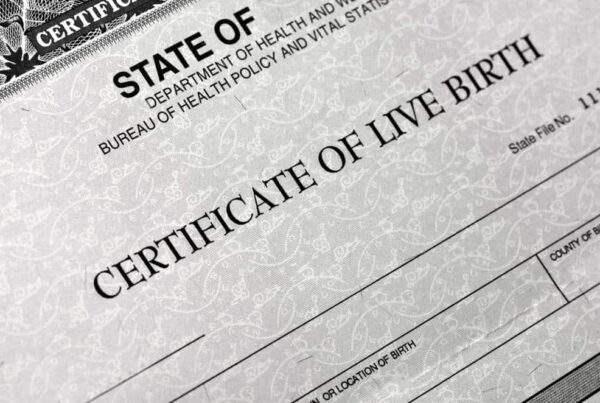
A surrogacy contract – which may also be called a Direct Agreement or a Surrogacy Agreement – is one of the most important documents in the surrogacy process. No matter whether you work with a surrogacy agency or find an independent surrogate, you need to exercise extreme caution if you don’t have a surrogacy contract in place. Depending on the state where you live, it may even be illegal to go through the surrogacy process without such an agreement in place.
Let’s take a look at what makes surrogacy contracts so important, what they cover, and how you can get one for your own surrogacy journey.
What Makes Surrogacy Contracts Important?
The main purpose of the surrogacy agreement is to protect everyone involved in the process and ensure that the surrogate pregnancy is successful. They disclose all of the terms and conditions of the arrangement and confirm the arrangement meets the state legal requirements. The contract outlines the process for ensuring that the correct parentage is assigned to the child upon birth. A successful and happy surrogacy is built upon a strong legal foundation, facilitated by a surrogacy contract.
Understanding the Different Elements of the Contract
Surrogacy agreements do more than just protect the surrogate or the intended parents. They are designed to protect all involved parties equally. This way, the arrangement can be completed without financial or legal hurdles. All of the important terms of the surrogacy contract are detailed below to make it clear what everyone is agreeing to. Here are some of the key elements that should be included in a surrogacy contract.
Current Laws
The contract should contain a description of all of the current laws in regards to the state the surrogacy is being conducted in. This includes the parentage rights for the surrogate and parent, the costs of surrogacy, and the protection for the different potential outcomes.
Medical Consent
Both the surrogate and the intended parent must agree on a provision for medical testing to test for communicable diseases – such as HIV/AIDS, Zika virus, Malaria, etc.) – and other medical conditions. The medical screening ensures that all involved are aware of the potential medical risks and the legal implications of the surrogacy.
Finances
A surrogacy contract must outline the financial obligations of each party. Who will be paying for what across the journey? The contract also outlines the details of the compensation and benefits package of the surrogate.
Parentage
The agreement should cite the specific legal authority of the state to ensure the contract is enforceable. The agreement must also establish the process for obtaining the parentage documents necessary to declare the intended parents as the full legal parents of the child born from the process, and declare that the surrogate and their partner are not the legal parents of the child born by the surrogate.
Rare/Unusual Outcomes
Some topics aren’t easy to discuss, but they should be discussed and included in the contract. This includes things such as selective reduction and termination. The contract should also outline what happens in rare events such as the death of an intended parent or a surrogate being placed on life support. The contract outlines the actions to be taken in these events. These discussions should be had before the surrogate becomes pregnant so that everyone involved knows what will happen and agrees to it ahead of time.
Drafting a Surrogacy Contract
Each party involved in the surrogacy arrangement should have their own respective attorney. It should be an attorney who specializes in fertility law. With a lawyer present at meetings and arrangements, the parties ensure they get fair and equal representation of their interests.
The contract is generally drafted by intended parents and their attorney. The finished draft is sent to the surrogate to review with their attorney. The parties continue to negotiate the terms of the contract until they come to an agreement. After a contract has been reviewed, agreed upon, and properly signed, the surrogate is clear to go ahead with medical procedures. The clinic is issued a letter of legal clearance that tells them the surrogacy can now continue with all the medications necessary for embryo transfer.
Keep in mind that contracts may not be the most fascinating part of the surrogacy process, but they are one of the most important. Take some time to read through and negotiate the contract. This stack of papers could be the difference between having a successful surrogacy or facing legal problems.


